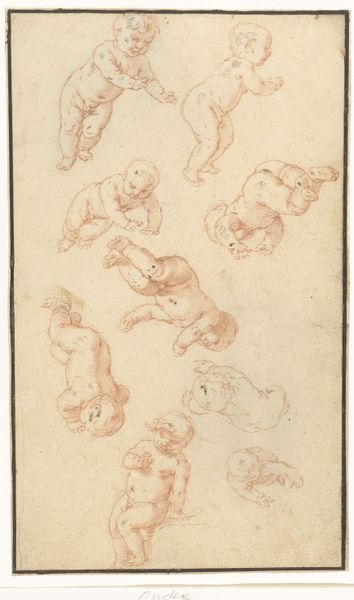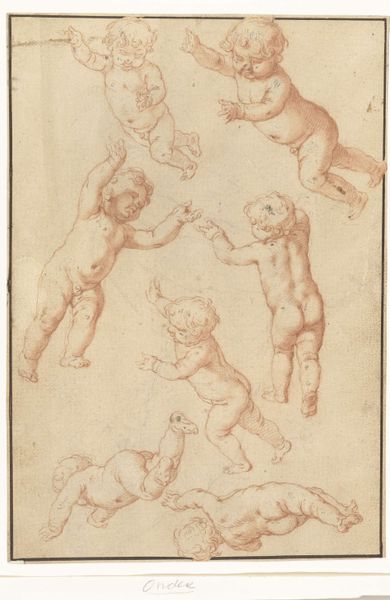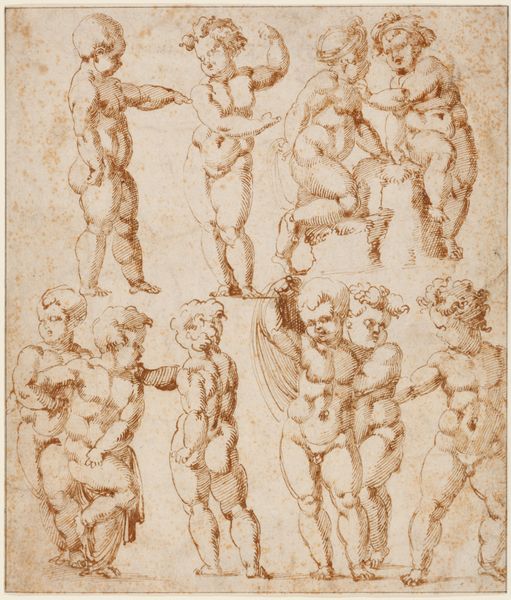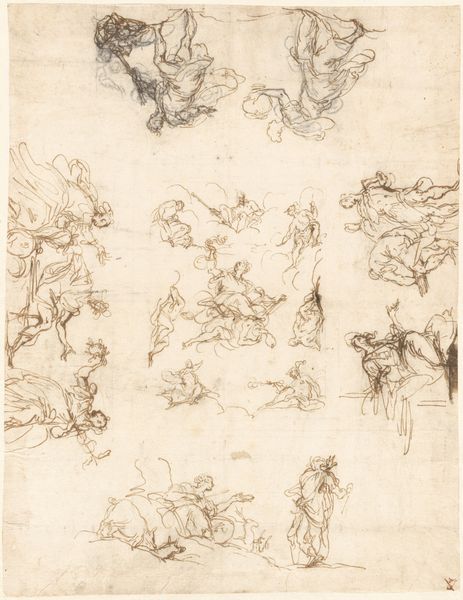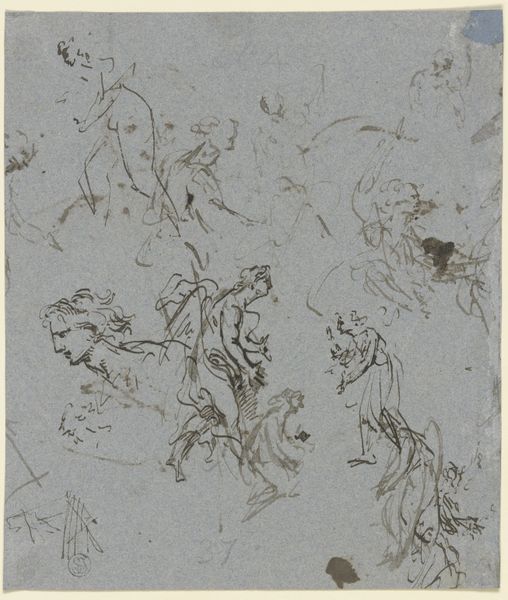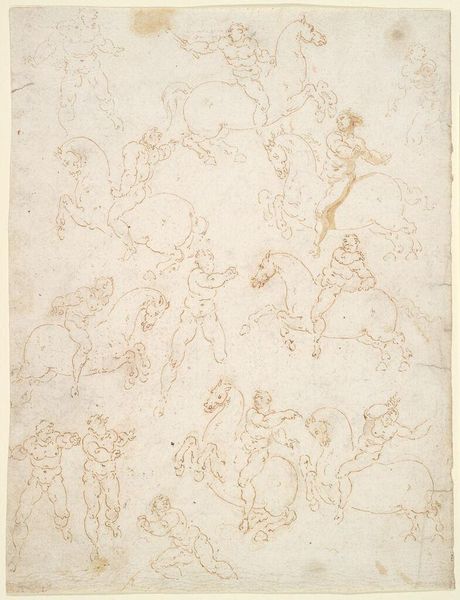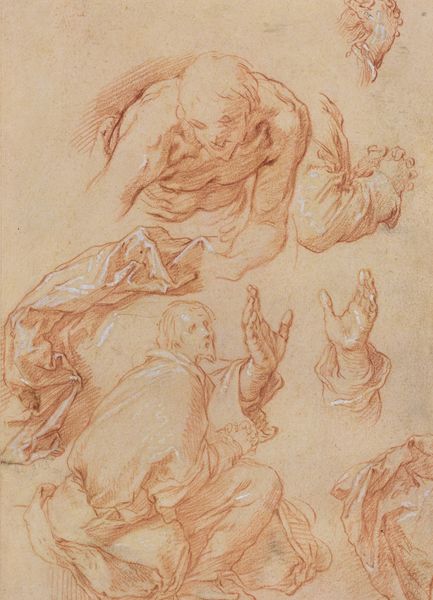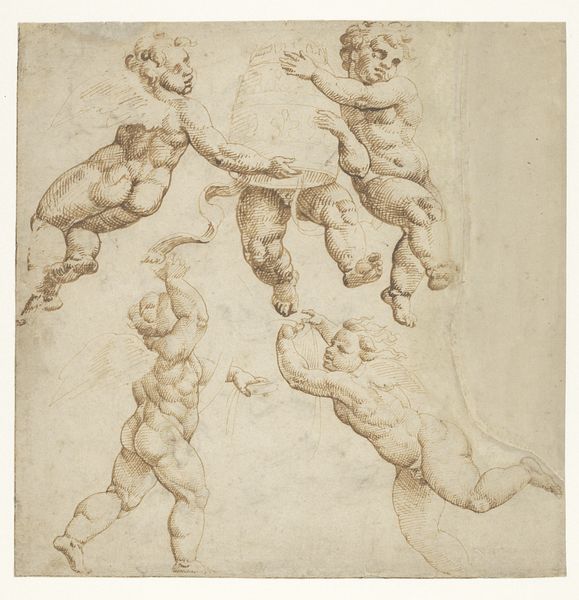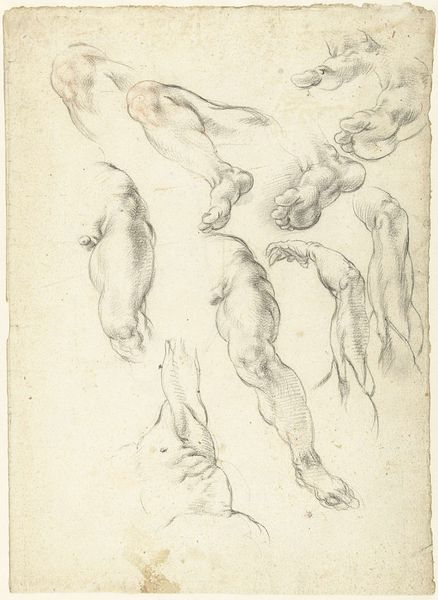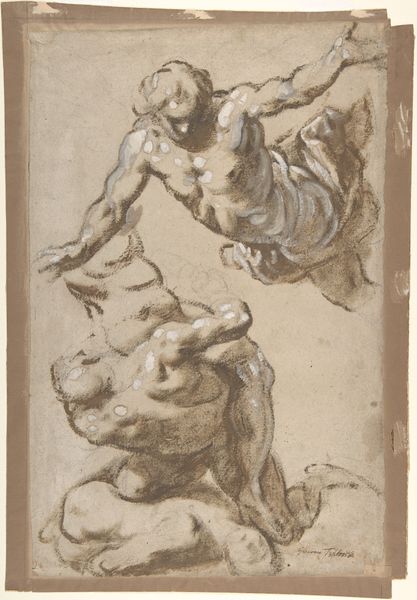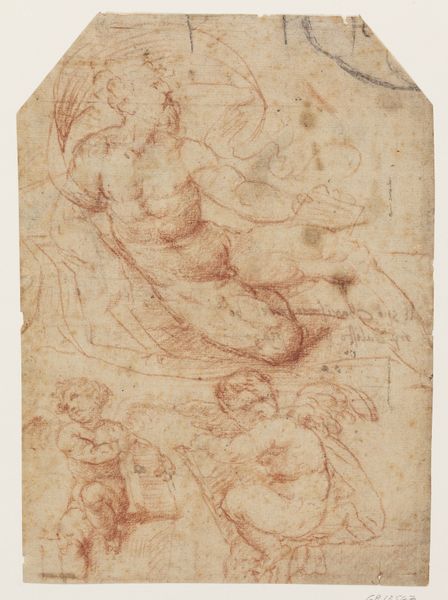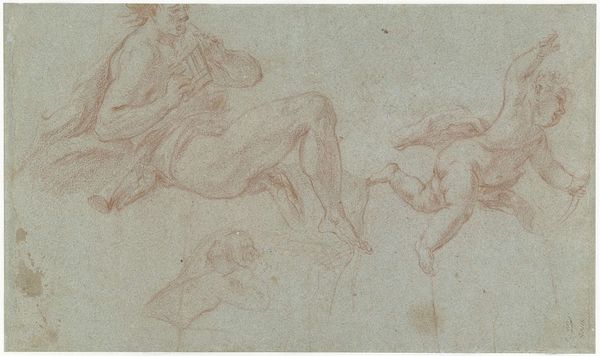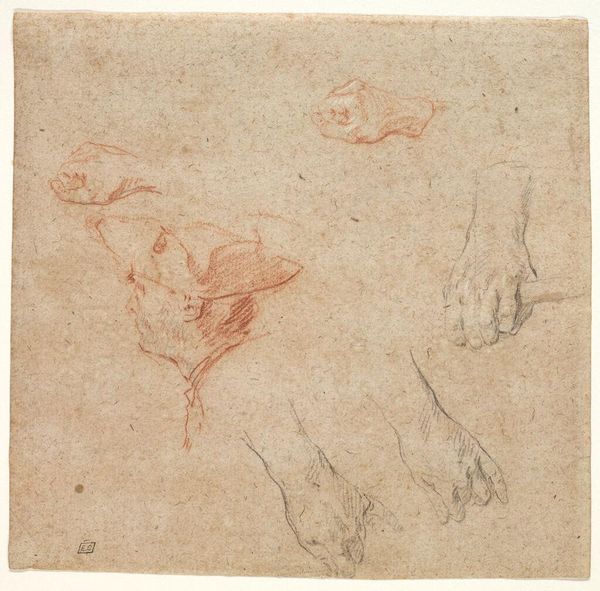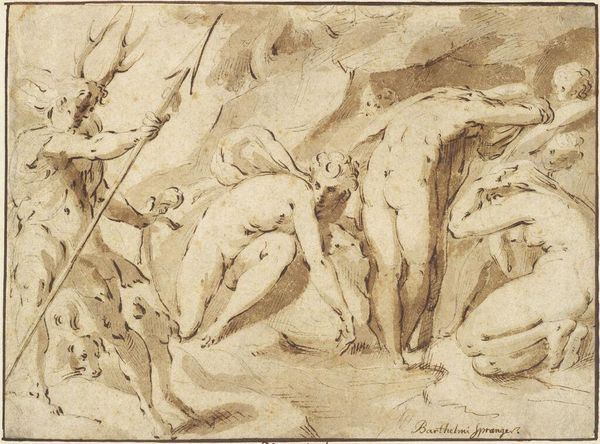
drawing, paper
#
portrait
#
drawing
#
figuration
#
paper
#
11_renaissance
#
history-painting
#
northern-renaissance
Dimensions: height 285 mm, width 172 mm
Copyright: Rijks Museum: Open Domain
This sheet of studies was made by Abraham Bloemaert, probably in the early 17th century, using red chalk on paper. Chalk is a relatively direct medium; you get a granular mark that can be easily blended. The artist coaxes a range of tonalities from the chalk through controlled pressure and mark-making. Although seemingly simple, drawing has always been understood as foundational to the broader project of art. It's where an artist works out ideas, masters the depiction of form, and develops a personal touch. Bloemaert no doubt made many such studies, probably for use in larger paintings. The putti that he depicts here – chubby, naked male children, often winged – are classical motifs, frequently employed in Renaissance and Baroque art. By repeating the figures, Bloemaert hones his ability to portray the human form from different angles. But the drawing also suggests something deeper about the artistic process; the repetitive labor that underlies the seemingly effortless skill of a master. It's a reminder that even the most transcendent artistic achievements are rooted in dedicated practice.
Comments
No comments
Be the first to comment and join the conversation on the ultimate creative platform.
